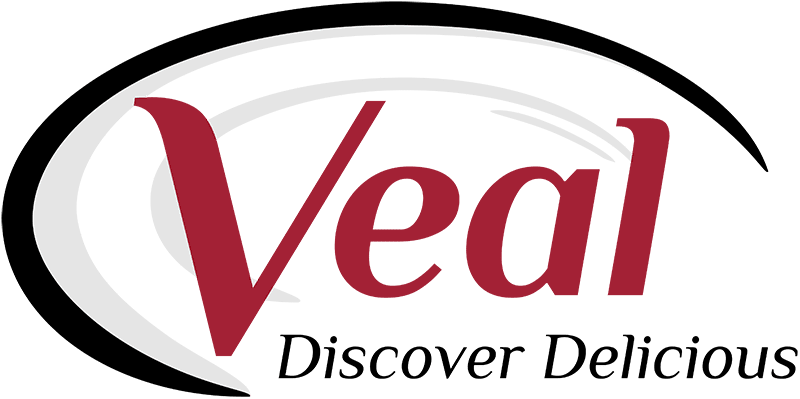November Veal Blog
Promotions
Try this new Veal Egg Roll recipe, created by blogger Shelby Ruttan and sponsored by the New York State Beef Council. It’s a perfect choice for holiday entertaining. Stay tuned for the newly revised and updated Veal Made Easy website coming in 2019.
Regulatory Affairs
FDA Finalizes Guidance on Mandatory Recall Authority. The Food and Drug Administration (FDA) issued final guidance regarding the agency’s mandatory recall authority under the Food Safety Modernization Act (FSMA). The guidance, which is presented in question and answer format, details FDA’s mandatory recall process and explains factors FDA considers when requiring a recall. FSMA granted FDA mandatory recall authority for foods if there is a reasonable probability that the food is adulterated or misbranded under certain FDA authorities, and that the food could cause serious illnesses or death. FDA, however, must first give the responsible party an opportunity to conduct a voluntary recall before ordering a mandatory recall.
FSIS Publishes Notice to Revise Salmonella and Campylobacter Categorization. The Food Safety and Inspection Service (FSIS) published a notice announcing revised categorization procedures for pathogen reduction performance standards. FSIS is proposing to base the establishment category status for Salmonella sample results during the 52-week window ending the last Saturday of the previous month, rather than on results during the last 13 completed 52-week windows. FSIS also will no longer include follow-up sampling results as part of the moving window when determining establishment category status. Additionally, FSIS will update establishments’ category status on its website on a monthly basis and will maintain the last six months of historical establishment-specific categorization data, using the revised categorization procedures announced in the notice. FSIS will use the revised categorization procedures for all establishments subject to a pathogen reduction performance standard for Salmonella or Campylobacter, including beef and pork establishments.
California Voters Approved New Space Requirements for Food-Producing Farm Animals. More than 61 percent of California voters, in the November 6th election, approved Proposition 12, which will establish minimum space requirements for farm animals raised for food. The ballot initiative will set space requirements for calves raised for veal (43 square feet of floor space per animal), breeding pigs (24 square feet) and egg-laying chickens (1 square foot). Proposition 12 also will ban the sale of veal, pork and eggs from animals confined in areas less than the minimum space requirements when the initiative becomes state law in 2020. The California Department of Food and Agriculture and the California Department of Public Health are responsible for implementing the proposition.
USDA to Renew National Advisory Committee on Meat and Poultry Inspection, Extends Nomination Period. USDA intends to renew the National Advisory Committee on Meat and Poultry Inspection (NACMPI or Committee) for two years. NACMPI provides advice and recommendations to the Secretary of Agriculture regarding state and federal meat, poultry and processed egg products inspection programs that fall within the scope of the Federal Meat Inspection Act, the Poultry Products Inspection Act and the Egg Products Inspection Act.
USDA also extended until December 4, 2018, the nomination period to apply for membership on the NACMPI. The Committee is comprised of 20 members and each person selected is expected to serve a two-year term. Application details are available here.
FDA Requests Information Regarding Sesame as an Allergen in Foods. The Food and Drug Administration’s (FDA) recently issued a request for information regarding the prevalence and severity of sesame allergies in the U.S. to inform possible regulatory action that would require sesame to be labeled as an allergen on packaged foods. FDA also seeks public input about the prevalence of sesame-containing foods sold in the U.S. that are not required by law to disclose sesame in the ingredient list on food packages. Sesame currently is not required to be disclosed as an allergen, and in certain circumstances, may be exempt from being listed by name in the ingredient statement on food packages. In addition, FDA invited comments regarding the possible costs of future regulatory actions associated with sesame disclosure. Public comments are due December 31, 2018.
DOL Proposes Modernizing Recruitment Requirements for H-2A Workers. The Department of Labor (DOL) proposed requiring U.S. employers seeking workers under the H-2A and H-2B programs – for seasonal farm labor and non-agricultural labor, respectively – to advertise jobs openings online instead of in newspapers. DOL said it is proposing to replace, rather than supplement, the newspaper requirements because it believes that exclusive electronic advertisements posted online would best ensure that U.S. workers learn of job opportunities. Public comments on the proposed rule are due by December 10, 2018.
FDA Releases Report on the Occurrence of Foodborne Illness Risk Factors in Fast Food and Full-Service Restaurants. The Food and Drug Administration (FDA) released findings from the initial phase of a 10-year study that is evaluating trends in food preparation practices and employee behaviors that contribute to foodborne illness outbreaks in retail settings. Data collected between 2013 and 2014, showed that restaurants exhibited the best control over ensuring that employees’ bare hands did not come into contact with ready-to-eat foods and that raw animal foods are cooked to their required temperatures. Other food safety behaviors and practices, including employee handwashing and temperature control of foods requiring refrigeration, remain areas for improvement, according to the report’s findings. Data from the 2013-2014 collection will be used as a baseline to assess trends in the occurrence of risk factors during subsequent data collections in fast food and full service restaurants. Additional data collections will investigate similar retail food safety research questions in institutional food service settings and retail food stores.
Interagency Food Safety Analytics Collaboration Releases New Report on Sources of Foodborne Illnesses. Vegetable row crops and beef were most often linked to E. coli 0157 illnesses from 1998 through 2016, whereas Listeria monocytogenes illnesses were most often associated with dairy products and fruits, according to a new report on foodborne illness source attribution estimates released by the Interagency Food Safety Analytics Collaboration (IFSAC). The report also found Campylobacter illnesses were most often linked to chicken, once dairy outbreaks were removed from the estimates, while Salmonella illnesses emanated from a wide variety of foods. The report is based on IFSAC’s analysis of data from more than 1,000 foodborne disease outbreaks.
National Academies Summarize Workshop on Sustainable Diets. The National Academies of Sciences, Engineering and Medicine (National Academies) published proceedings of a workshop from its August Food Forum on sustainable diets, food and nutrition. The proceedings summarize discussions from the workshop, which reviewed current and emerging knowledge about sustainable diets within the field of food and nutrition; examined sustainable diets and relevant impacts for cross-sector partnerships, policy and research; and addressed the influence of sustainable diets on dietary patterns, food systems, public health and people. The views expressed in the proceedings reflect the knowledge and opinions of individual workshop participants and do not represent consensus among the participants, members of the Food Forum or the National Academies.
FDA Issues Two Guidance Documents on Nutrition Facts Label Issues. The Food and Drug Administration (FDA) last week issued one final and one draft guidance on topics related to two final rules updating the Nutrition Facts label. The final guidance, “Nutrition and Supplement Facts Labels: Questions and Answers Related to the Compliance Date, Added Sugars, and Declaration of Quantitative Amounts of Vitamins and Minerals: Guidance for Industry,” presents questions and answers to help manufacturers determine how to calculate added sugars in their products under certain circumstances. Other topics addressed include compliance, label formats and declaration of quantitative amounts of vitamins and minerals.
The draft guidance, “Food Labeling: Serving Sizes of Foods That Can Reasonably Be Consumed At One Eating Occasion, Reference Amounts Customarily Consumed, Serving Size-Related Issues, Dual-Column Labeling, and Miscellaneous Topics: Guidance for Industry,” covers the definition of a single-serving container, dual-column labeling and reference amounts customarily consumed, among other topics. FDA is accepting public comments on the draft guidance for 60 days.
FDA Announces Plant and Animal Biotechnology Innovation Action Plan. The Food and Drug Administration (FDA) detailed stepsthe agency will take through 2020 to promote innovation in plant and animal biotechnology applications. The FDA Plant and Animal Biotechnology Innovation Plan will advance FDA policy priorities, clarify the agency’s science- and risk-based approach for product developers and eliminate unnecessary barriers to future innovation in plant and animal biotechnology, according to a joint statement released last week from FDA Commissioner Scott Gottlieb and Deputy Commissioner Anna Abram. As a first step, FDA will adopt a comprehensive policy framework for the development and regulatory oversight of animal biotechnology products, including intentionally genetically altered animals and the food and drug products derived from them.
FDA’s action plan identifies three priority areas: advancing human and animal health by promoting product innovation and applying modern, efficient and risk-based regulatory pathways; strengthening public outreach and communication regarding the FDA’s approach to innovative plant and animal biotechnology; and increasing engagement with domestic and international partners on biotechnology issues. Over the next year, FDA will publish two guidance documents explaining how the agency is applying its regulatory oversight to evaluate new animal biotechnology products based on the risk profile of various products.
FSIS Issues Directive Regarding Record Keeping at Establishments that Grind Beef. The Food Safety and Inspection Service (FSIS) issued a directive instructing inspection program personnel (IPP) how to verify whether official establishments are maintaining required records concerning suppliers and source materials for raw beef ground at the establishment. Official establishments and retail stores are required to maintain the establishment numbers of the establishments supplying the materials used to prepare each lot of raw ground beef product; supplier lot numbers and production dates; and names of the supplied materials, including beef components and any materials carried over from one production lot to the next. In addition, official establishments and retail stores must keep the date and time each lot of raw ground beef product is produced and the date and time when grinding equipment and other related food-contact surfaces are cleaned and sanitized.
Agriculture Secretary to Re-establish Advisory Committee on Animal Health. The Animal and Plant Health Inspection Service announced Agriculture Secretary Sonny Perdue intends to re-establish the Secretary’s Advisory Committee on Animal Health for a two-year period. The Committee advises the Secretary of Agriculture on strategies, policies and programs to prevent, control and eradicate animal diseases. The Committee considers agricultural initiatives of national scope and significance, advising on matters of public health, conservation of national resources, stability of livestock economies, livestock disease management and traceability strategies, animal health imperatives and other related aspects of agriculture.
International Affairs
CPTPP to Enter into Force this December. The Comprehensive and Progressive Agreement for Trans-Pacific Partnership (CPTPP), the successor to the Trans-Pacific Partnership (TPP), will enter into force December 30, 2018, after Australia became the sixth country to ratify the 11-country trade pact. Canada, Japan, Mexico, New Zealand and Singapore have already ratified the deal. The U.S. withdrew from the TPP in January 2017. The CPTPP will reduce tariffs in economies that together account for more than 13 percent of global gross domestic product, totaling $10 trillion. Brunei, Chile, Malaysia, Peru and Vietnam have not yet ratified the agreement.
Meetings, Events and Education
NAMI to Host Meat Pavilion at NGA Show. The North American Meat Institute, a contractor to the Beef Checkoff, will host a Meat Pavilion as part of the 2019 National Grocers Association (NGA) Show, February 24-27, 2019, at the San Diego Convention Center in San Diego, California. The 2019 NGA Show convenes independent retailers, wholesalers, food retail industry executives and food manufacturers to highlight cutting-edge tools, marketplace trends and best practices facing the independent grocery industry. For additional information or to exhibit in the pavilion, contact Director of Conference Services and Sponsorships Robin Troy at RTroy@meatinstitute.org or 202/587-4242.














